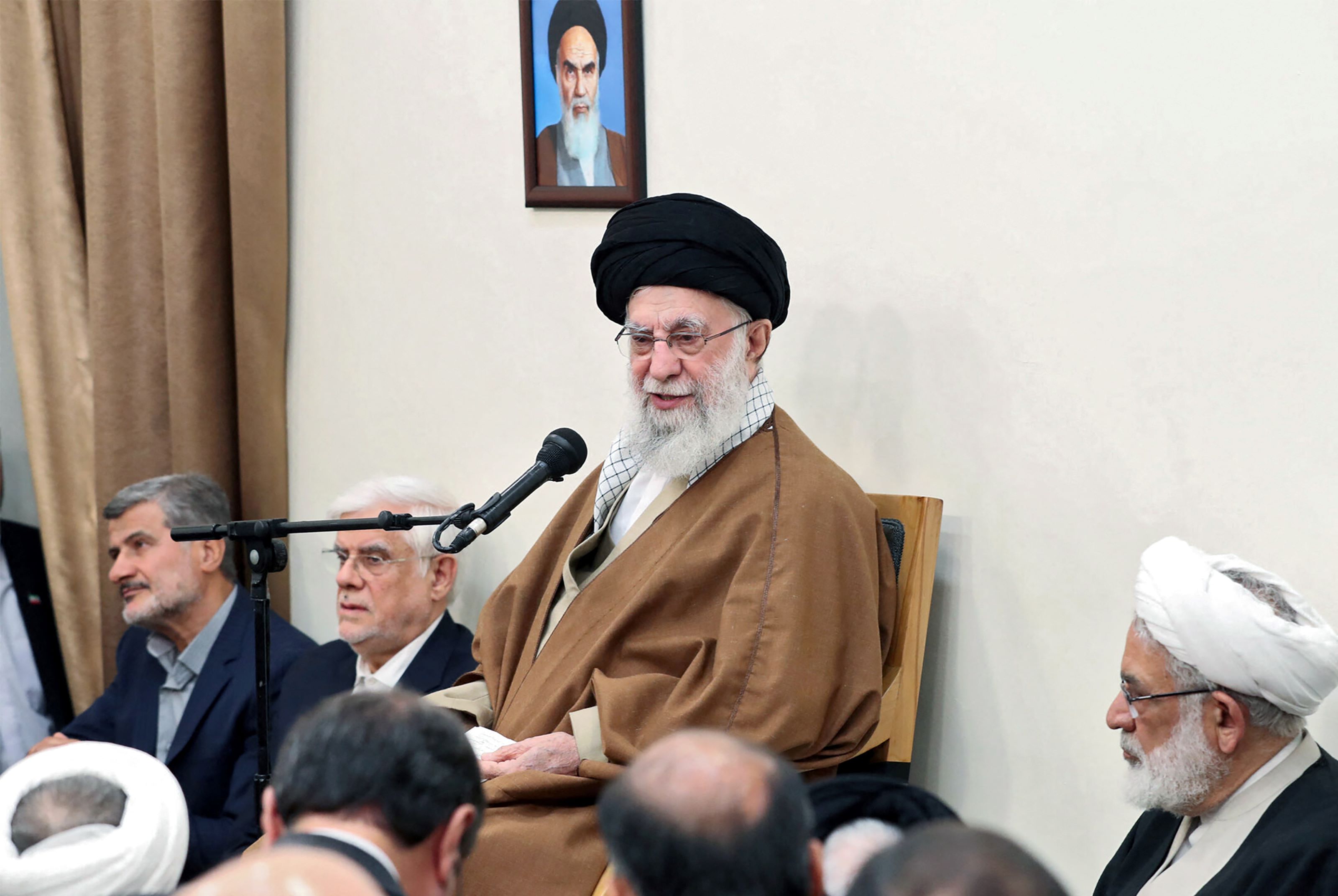
TEHRAN - Iran's Supreme Leader Ali Khamenei on Tuesday warned against "extreme optimism or pessimism" in the country about the indirect talks between Tehran and Washington.
He made the remarks in a meeting with senior government officials in Iran's capital Tehran while pointing to the talks between Iranian Foreign Minister Seyed Abbas Araghchi and US Special Envoy to the Middle East Steve Witkoff on Tehran's nuclear program and removing sanctions, the first round of which was held in the Omani capital Muscat on Saturday, according to a statement published on his website.
"We should not be extremely optimistic or extremely pessimistic about these talks," he said, adding that the negotiations may or may not yield results.
READ MORE: Iran confirms Muscat to host 2nd round of nuke talks with US
He stressed, "We are, of course, very distrustful of the other side. However, we are optimistic about our capabilities".
The Iranian leader also cautioned against "tying the country's affairs to the talks", emphasizing that activities in industrial, economic, construction, and cultural sectors, as well as the implementation of major projects, should proceed uninterrupted, as they are unrelated to the talks in Oman.
The second round of the indirect talks between Iran and the United States is scheduled to be held on Saturday in Muscat.
ALSO READ: Iran says nuclear issue, sanctions focus of indirect talks with US in Oman
The talks were proposed by US President Donald Trump, who threatened Iran with bombing and secondary tariffs if Tehran did not come to an agreement with Washington over its nuclear program.
Iran signed a nuclear deal, formally known as the Joint Comprehensive Plan of Action, with six major countries -- Britain, China, France, Germany, Russia, and the United States -- in July 2015, accepting restrictions on its nuclear program in return for sanctions relief.
READ MORE: Trump threatens Iran with military action over nuclear disarmament
However, the United States withdrew from the deal in May 2018 and reinstated sanctions, prompting Iran to scale back some of its nuclear commitments. Efforts to revive the nuclear deal have not achieved substantial progress.


